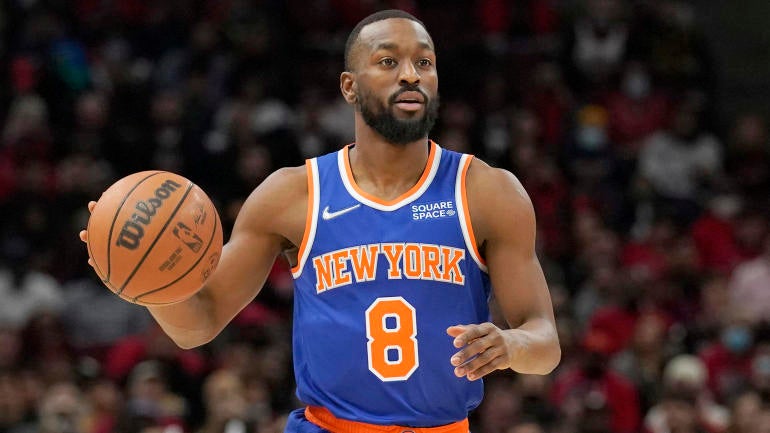
Forward Josiah Slavin has worked hard to improve his skating. For the time being, he’ll continue refining it in the NHL.
Recalled Monday from AHL Rockford in a swap with Philipp Kurashev, the 22-year-old Slavin has been one of the IceHogs’ most consistent forwards, collecting four goals and four assists. His game, though, is unfinished and that fundamental aspect has required most of Slavin’s attention.
“It’s been a lot of work on my skating,” said Slavin, the brother of Hurricanes defenseman Jaccob Slavin. “I’m not the prettiest skater. It’s not always the most effective way when you’re not pretty, so in the offseasons my skating is my main focus.”
This past summer, Slavin participated in his agent’s summer camp which had a skating coach, which he said really helped him improve.
“You can never have too perfect of a stride, right?” Slavin said. “There’s always more ways to improve your stride and get the most efficiency out of each stride. So that’s kind of where the focus is.”
Slavin doesn’t need to be told how important an efficient stride is. Whether it’s the NHL or in the AHL with the IceHogs, a hockey season is a grind and every bit of energy helps.
Wasteful skating doesn’t.
“It’s a long season, right? Eighty-two games, so you’ve got to be the most efficient in every stride that you have,” said Slavin, whose head hit the ice Sunday and required stitches. “That way you don’t wear yourself out in the first 20-30 games. It’s a long season. Each stride is more work to be done. If you’re efficient in each stride you don’t have to take as many, right?”
What Slavin is doing earned him his first NHL recall, though he joins a team that’s struggling to score goals. On Tuesday, the Hawks moved out-of-favor forward Dylan Strome to a line with Alex DeBrincat and Kirby Dach. Jonathan Toews, meanwhile, told interim coach Derek King he doesn’t want to be in the “bumper” spot on the power play.
Slavin won’t be depended on to score goals. Instead, if he gets into a game, he’ll be asked to keep doing what he was in Rockford: win puck battles and use his 6-3, 189-pound frame.
“It’s nice to reward these kids that are working hard and playing well,” King said.
Hard work has been a theme for Slavin, who had to scrap to make the NHL after being a seventh-round pick in the 2018 draft. But Slavin didn’t think his draft slot meant all that much.
“I was a seventh-round pick, but I don’t think being drafted says anything,” Slavin said. “That’s when the work starts. I kind of took it as that and I just went to work after that.”
King recognized that work ethic.
“All of these guys, whether you’re a first-rounder or not or other rounds, they work hard, but I think coaches seem to gravitate to these seventh- or sixth-rounders that… they push themselves,” King said. “They know how to compete all the time. That’s what he does. He’s earned it. We’re rewarding him and I’m looking forward to seeing him at this level.”
NOTES: Rockford announced top prospect Lukas Reichel is in concussion protocol and will not play in its game Wednesday after crashing into the boards during the third period Sunday. Interim IceHogs coach Anders Sorensen had no timetable for Reichel’s return to the lineup.
“I saw him today, he was in good spirits,” Sorensen said. “He said under the circumstances he’s feeling pretty good.”
* Hawks defenseman Calvin de Haan did not practice due to lower back soreness. King said de Haan is day-to-day, and there was no point to have him push through it for practice.
“It’s probably just old age I guess creeping up on him,” King joked about the 30-year-old blueliner.
The Link LonkDecember 01, 2021 at 07:32AM
https://chicago.suntimes.com/blackhawks/2021/11/30/22811020/chicago-blackhawks-reward-josiah-slavins-hard-work-with-nhl-call
Blackhawks reward Josiah Slavin’s hard work with first NHL call - Chicago Sun-Times
https://news.google.com/search?q=hard&hl=en-US&gl=US&ceid=US:en








